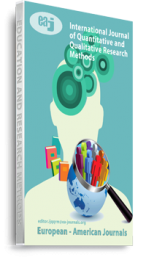The study investigated Ziller’s probability model of test standardization on the level of students’ test-anxiety and attitude towards learning Mathematics among Senior Secondary School Two (SS 2) students in Ondo State, Nigeria. It employed non-experimental, descriptive survey and correlational research design for the study. The sample comprised 600 SS2 students selected through a multistage sampling procedure across the three senatorial districts in Ondo State. Data were collected using three research instruments and analysis was conducted using both descriptive and inferential statistics with hypotheses tested at 0.05 level of significance. Findings showed that there was high guessing tendency in multiple choice tests and also there were differences among the uncorrected scores in multiple choice, two-tier items and Ziller’s standardize multiple-choice test. After applying Ziller’s Model, there was a negative influence on students with very low-test anxiety as reflected by a difference of -1.83. In contrast, students with low and moderate anxiety levels showed a positive influence with a difference of 0.22 and 0.16 respectively. However, there was no significant relationship between test anxiety and academic achievement either before or after the Ziller’s model application. Similar the relationship between two-tier and academic achievement was not significant before (r= -0.27, P >0.05) and after (r=0.22, P >0.05) applying the model. Additionally, there was no significant relationship between attitude towards Mathematics and academic achievement both before and after (r=0.26, P >0.05). The study concluded that Ziller’s model positively influences test-anxiety and attitudes towards Mathematics and recommended its adoption in standardizing test items in Nigeria Secondary Schools.
Keywords: Test anxiety, Ziller’s probability model, attitude, test standardization

